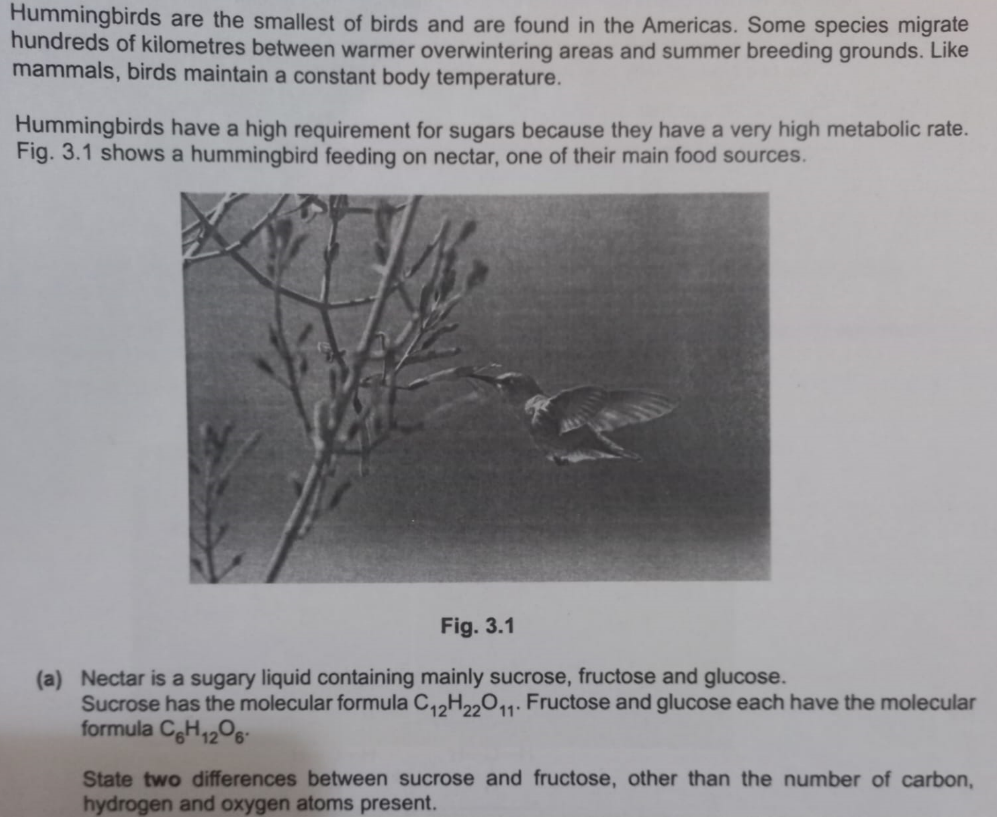State two differences between sucrose and fructose, other than the number of carbon, hydrogen and oxygen atoms present.

Understand the Problem
The question is asking to identify two differences between sucrose and fructose, focusing on aspects besides just the number of carbon, hydrogen, and oxygen atoms present in their molecular structures.
Answer
Sucrose is a disaccharide; fructose is a monosaccharide. Sucrose contains a glycosidic linkage.
Sucrose is a disaccharide composed of glucose and fructose, while fructose is a monosaccharide. Sucrose has a glycosidic linkage between glucose and fructose, whereas fructose does not have this linkage.
Answer for screen readers
Sucrose is a disaccharide composed of glucose and fructose, while fructose is a monosaccharide. Sucrose has a glycosidic linkage between glucose and fructose, whereas fructose does not have this linkage.
More Information
Sucrose, commonly known as table sugar, is derived from sugarcane or sugar beets. Fructose is found naturally in many fruits and honey.
Tips
It's important not to confuse sucrose and fructose with glucose, another common sugar with different properties.
Sources
- What's the Difference Between Sucrose and Fructose? - WebMD - webmd.com
- Glucose vs. fructose, sucrose, and lactose: What's the difference? - levels.com
- Carbohydrates (article) | Macromolecules - Khan Academy - khanacademy.org
AI-generated content may contain errors. Please verify critical information